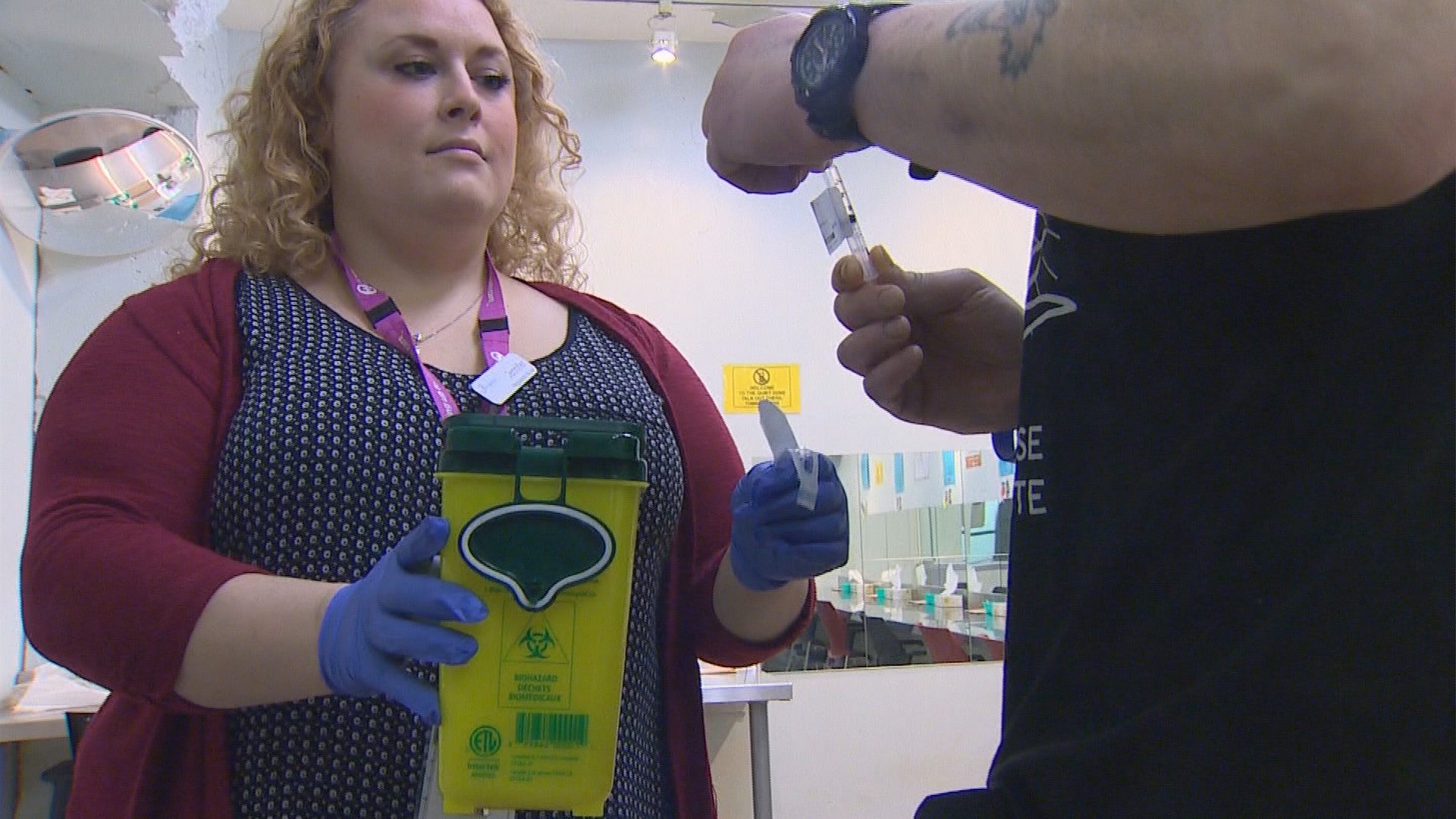In Vancouver, B.C., a controversial program is fighting heroin-related deaths by giving users the drugs and then making sure they inject safely.
Doctors and nurses supervise the process so there are no overdoses. The users say it works.
"Up until the time I came to this program, I was living day to day, a bit homeless, in addiction for the last twenty years," says Les, a long time Vancouver resident, as he settles into a small clinic on East Hastings. "The heroin takes away all my problems, so I had a hard time kicking (it). I used to cope really on a daily basis."
Now, he's just one of roughly 130 patients at the Crosstown Clinic, run by Providence Health in conjunction with Vancouver Coastal Health. It's been open since 2014, at a time when the opioid crisis exploded in the lower mainland of BC.
The BC Coroner's office announced just last month a staggering number of deaths attributed to illicit drugs, more than 1,400 in 2017. That's four a day. BC Health leaders point specifically to a heroin supply contaminated with Fentanyl, heroin's cheaper more potent cousin, as a reason for the surge.
"We're providing a legal, sterile, pharmaceutical predictable treatment," says Doctor Scott McDonald, who helps run the clinic, in the rough stretch on Hastings just outside downtown.
A patient can come in, get their dosage, and inject under the watchful eye of nurses and doctors.
"If people are using in a supervised setting like that - all that injection paraphernalia - contained in one spot - you won't find syringes in playgrounds or on sidewalks it's safe." McDonald says there is a waiting list of more than 330, given the small size and list of people who need help.
In order to qualify, patients must meet several criteria, according to Providence.
Basically, the Crosstown Requirements for iOAT are:
- The patient is 18 years of age or older; AND
- Oral opioid agonist therapies have not been successful; AND
- The patient has capacity to consent to and fully understand the goals of treatment including the risks of iOAT ; AND
- The patient has a well-established history of injection drug use with opioids, and severe opioid use disorder; AND
- The patient is currently injecting opioids confirmed with signs of injection drug use and preferably two documented positive urine drug screens; AND
- The patient is able to attend up to 3 times per day; AND
- The patient is able to self-administer injection drugs under supervision either IV or IM; AND
- The patient has significant risk of medical consequences of injection drug use that would benefit from increased health system involvement; AND
- The prescribing physician is experienced in the treatment of opioid use disorder.
Providence says it costs roughly $25,000 Canadian, per patient, per year, to administer the program. "It reduces societal costs - so it's a win win for everybody," says McDonald, "This is a cost-effective treatment."
It is much different than the highly publicized InSite clinic, also on Vancouver's East Side, that has served as a model for Seattle and King County. That spot allows people to bring their own drugs into a supervised environment, similar to what is being considered in Western Washington. The Crosstown Clinic is a completely different model.
Les takes his dosage, and is able to talk about it immediately after.
"This program has changed my life completely. Before I came to this program, I was in and out of prison - better part of my whole life - since I've been in this program, I haven't reoffended - stable housing, a job. I'm well on my way to becoming productive member of society again even though I'm still using heroin. All the criminality has been taken away. I don't have to crime to support my habit," Les said.
He also says, he can manage pain, and doesn't have to wade into the illegal and likely deadly black market.
Les is now working 40 hours a week, with a stable roof over his head.
"It's changed my life I've been an addict since I was 20 years old. I'm almost 50 now...and uh, this is the best my life has been for as long as I can remember and I can thank the program for that."


